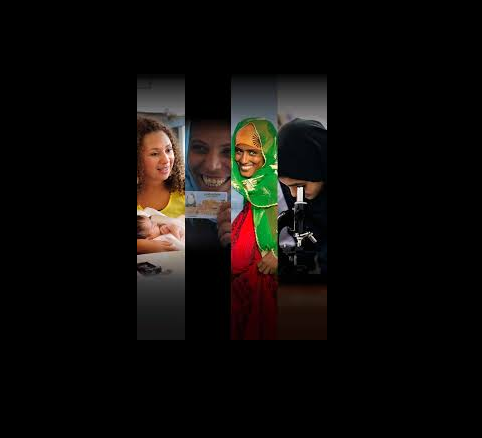Cross-regional knowledge exchange on academia’s contribution to advancing gender equality and women’s empowerment in the Arab States
On 21 and 22 June, UN Women Tunisia Country Office in partnership with the University of Sousse Higher Institute of Commercial Studies, convened the second International Conference on Gender Studies. This year’s theme “Gender, Innovation and Local Development” highlighted the vital role of innovative approaches in promoting gender equality and women’s empowerment, and accelerate local development efforts to implement Agenda 2030 and the Sustainable Development Goals.
To promote cross-regional dialogue, academic representatives from Bahrain and Kuwait shared their countries’ experiences in leveraging gender equality and women’s empowerment as a catalyst for local development.
Insights from Kuwait:
Professor Lubna Al-Kazi, Director the Women’s Research and Studies Centre at Kuwait University, discussed Kuwait’s advancements in the area of women’s economic empowerment. She highlighted the importance of multi-stakeholder partnerships, noting the collaborative efforts of UN Women, UN Development Programme (UNDP), the General Secretariat of the Supreme Council for Planning and Development, and the Kuwait University Women’s Research and Studies Centre since 2017.
“Kuwaiti women’s participation in the labour force has increased to 57.9% - the highest level in the Gulf Cooperation Council”, Professor Al-Kazi said. “Women’s leadership rate has increased from 15% in 2017 to 21% in 2024.” She also highlighted the commitment of 45 Kuwaiti private sector Chief Executive Officers to the UN Women – UN Global Compact Women’s Empowerment Principles. Additionally, eight leading private sector entities joined forces to establish the Kuwait Women’s Economic Empowerment Platform to work collaboratively on enhancing women’s participation and leadership in the private sector, supported by the Kuwait University Women’s Research and Studies Centre, GSSCPD, UN Women, UNDP, and the Women Mentor Forum.
Insights from Bahrain:
Dr. Christelle Comair, Head of the Women’s Research Centre of the Royal University for Women in Bahrain, outlined the Forum’s focus on priority areas for gender quality research. "When considering women’s advancement, we must look at three key levels: institutional frameworks, governance, and legal reforms. Bahrain has made significant strides in these areas and is setting a precedent in terms of policies and initiatives to accelerate women's empowerment”. Dr. Comair noted that “integrating women’s needs into innovation and development strategies is crucial, as is fostering collaborative projects between public, private, and academic institutions. Local development is the entry point for all these initiatives."
Speaking to the importance of measuring progress, and the role of academia in multi-stakeholder efforts for gender equality and women’s empowerment, Dr. Comair highlighted that a "critical aspect is the production of data about women and the monitoring of progress through specific indicators. Efforts have been made in this direction, and it is now time to fast-track these efforts through innovative methodologies that focus on women’s needs and build the capacity of researchers to conduct women’s studies."
Tags
Summary of country programme
UN Women’s Regional Office for the Arab States Strategic Note 2022–2025 aims to accelerate gender equality and women’s empowerment for all women and girls, particularly the most vulnerable. Rooted in global normative frameworks, it focuses on advancing sustainable development and humanitarian, peace and security efforts in line with regional and national priorities.
UN Women serves 17 countries in the region, supporting women's leadership and political participation; women, peace and security initiatives; humanitarian efforts; advances in the world of work; and ending violence against women and girls. Legal and policy reforms to end discrimination against women are foundational strategies, along with the production of evidence and data to support national development priorities, humanitarian responses and advocacy.
Major partners comprise regional intergovernmental bodies, diverse government counterparts, civil society organizations, the private sector, academia, international financing Institutions and UN entities. With strategic partners, UN Women enhances scale, programmatic efficiencies, effectiveness and sustainability.
Documents

Arab States: Gender equality in the law
13 May 2025
